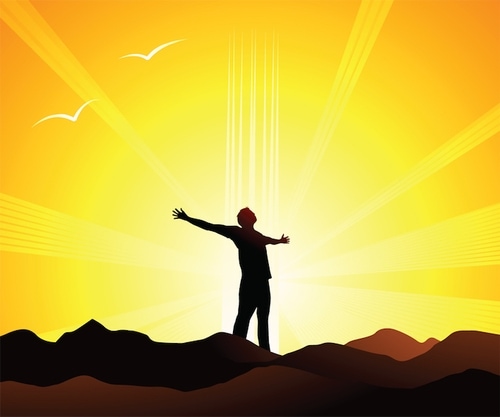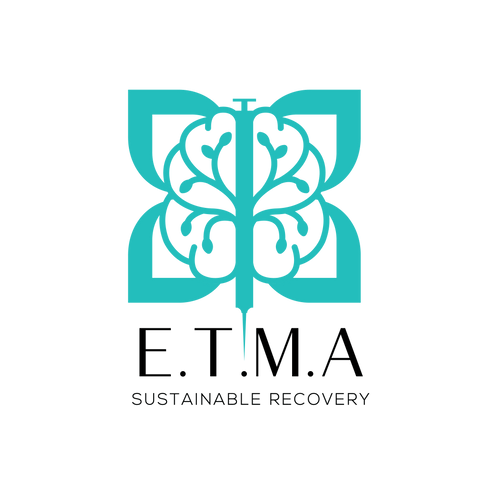Spiritual Awakening

Recovery is difficult, painful, but most importantly enlightening. Is this necessarily true? Do we get enlightened in recovery or is it just wishful thinking, part of the magical thinking of a dry drunk? According to Immanuel Kant, an 18th-century Prussian philosopher, “enlightenment” is man’s emergence from his self-incurred immaturity, in which the cause is not a lack of understanding, but a lack of resolution and courage to use one’s own initiative to live life without the aid of others. His views were published in 1784, yet they still apply to understanding what enlightenment is and whether by being in recovery one could attain this feat. It states simply that to live without due reliance on others makes one enlightened. Recovery may not totally bring us to the awakenings necessary to be fully enlightened, but if our hearts are open to the pain of transformation it poses in our lives, it brings us one step closer to this goal from where we were before.
Reasons why we were asleep:
To be spiritually awake denotes that at one time, we were asleep. Spiritual dormancy like its physical counterpart is a form of inactivity. Being spiritual, this inactivity is a lack of zeal and zest for life and has a lot to do with the kind of immaturity prescribed by Kant in the previous section. There are a number of reasons why the majority of mankind lie within this cradle of spiritual sleepiness, such as is listed below:
1)
– Unless something significantly tragic has happened in our lives will we want to change the way we live with all its economic, social, and political conveniences. Why would we want to change the status quo when we benefit in every way from it? Today we can connect with others at such speed that would blush our ancestors. We live in an age of convenience where there is simply no need to use our inner drive and initiative as well as creativity as compared to those who lived in less jaded times. We become apathetic consumers of modernity with the laziness and cowardice that goes with the culture of continuous greed and consumption, hence lulled to sleep spiritually!
2)
– We depend on others to dictate our lives. It could be what we deem as our betters at work or at home. We submit to the tyranny of their wants simply to be pleasing to them. We don’t stand up for our own values, beliefs, and goals as it is simply too scary and hard unless we are pushed to bargaining point. This codependence enables us to put the responsibility for growing up on the back and shoulders of others. According to Kant, it could be our spiritual advisor, pastor, or clergymen.
3)
– We get others to do our work for us. We employ workers such as carpenters and plumbers to fix broken things rather than attempt to do it ourselves. We hire maids and nannies to take care of the housework and discipline our children. We put the responsibility of our lives on people who we can pay for their services. This is the reason why those who are poor are more self-reliant than those who can afford to pay for goods and services. Out of material wealth comes a spiritual jadedness that parallels a form of sickening entitlement.
4)
– We believe accepted norms and beliefs without questioning its relevance and applicability to our own unique situation. We follow religious dogma without making personal choices and decisions around it by making it a personal undertaking. We fail to bring individual meaning to our choice of faith and rather inherit its fundamentals from our ancestors without challenging its logic and science. We are afraid to confront, question, and argue with religious authorities because we fear the legal repercussions of doing such things in the conservative societies that pervade our globe.
5)
– All of the reasons point to a generic fear of people, places, and things. Our failure to stand up for ourselves are resultant of being afraid and carrying the fear of our predecessors into the next
generation.
How does recovery bring about “Enlightenment”?
Active addiction, be it towards chemicals, behaviors, or simply towards the current way of living had brought with it all the problems listed in the previous section. We had become spiritually asleep and unable to watch our real potential and worth. As mentioned previously, recovery is a difficult, challenging, and painful process that demands change towards spiritual dynamism or death in addiction. Faced with living on a spiritual basis or dying an addict’s death forces those in recovery to the brink of self-improvement or annihilation. It is in the programs of improving oneself that addicts in recovery learn to become more enlightened individuals and become masters of their own destiny. How recovery does that is as follows:
The programs of recovery be it the 12-steps, mindfulness and meditation, SMART, or the various therapies such as CBT (Cognitive Behavioral Therapy) exposes us to a deeper understanding of how the “self” works. Working on our own daily behavioral inventories and disputing our cognitive impairments makes us pros at being self-aware individuals. This awareness is the first step to recognizing our spirit, and thus become involved in its transformation and change.
As addicts in recovery, we come to realize that we don’t always get our own way in life. Life is filled with opportunities for acceptance, which at times may not be as savory as the pleasures of a good time. This will involve pain, but we come to realize that suffering is a choice and is usually allayed when acceptance and tolerance permeates our actions and attitudes.
Unlike active addiction, when in seeking pleasure, we were exposed to unwanted pain; in recovery, we embrace the pain and difficulties in life with due acceptance and feel eventual pleasure from doing so! Being enlightened can’t be faked. You either have it or you don’t. It is a process of awakening, which develops as one is able to progress in maturity, taking each challenge at a time, thus opening a doorway to the next level. Decisions are not made based on quick fixes and easy gains; but on hard earned realities and truths.
This comes from extensive mindfulness and meditative or contemplative practices whilst undergoing emotional turmoil. If one could be at peace with the world, no matter how challenging it beckons, one will gain emotional freedom. Clarity comes first and foremost from the personal insights that abound from taking responsibility for one’s own actions.
Are we there yet?
For those who are disengaged with this process, stagnation is as far as one could go. For us to be there is to work a program of recovery on ourselves. Recovery is not just a means to rid one from addiction, but a recognition that addiction was a symptom of a spiritual malady. This spiritual sickness came about due to being spiritually dormant or inactive. In other words, we were living a life that was not ours to live. So, we rebelled in active addiction. To recover is to awaken to our own purpose of being. So, if you ask, “are we there yet?” Ask yourself how much effort have you put in to getting there and you will know when you’ve reached your destination in being
Taken from:
https://web.cn.edu/kwheeler/documents/What_is_Enlightenment.pdf
[3] Taken from: https://web.cn.edu/kwheeler/documents/What_is_Enlightenment.pdf
[4] Taken from: Ibid.

